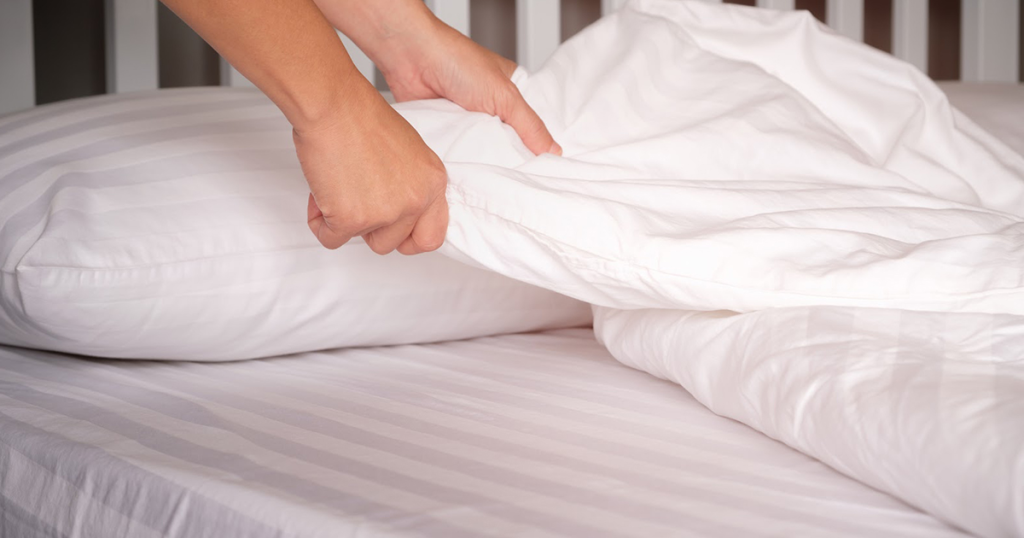While I don’t mind tackling a load of laundry for my clothes and towels, there’s something uniquely daunting about washing bedding. It’s a multi-step process, involving the removal of sheets, pillowcases, duvet covers, and comforters. Often, you’ll find yourself juggling at least two loads of laundry because cramming all these items into one just won’t cut it. Then comes the dreaded task of making the bed again – an ordeal anyone with a comforter and duvet cover can relate to. Yes, we acknowledge that these are quintessential first-world problems.

However, as minor as these inconveniences may seem, they contribute to a common tendency among us: the procrastination of washing our bed linens. But, here’s the catch – this procrastination isn’t as harmless as it appears. Mary Marlowe Leverette, an expert in laundry matters, has a rather unsettling revelation: “While we sleep, we continue to sweat, releasing body oils and dirt. Saliva, urine, genital fluids, and feces can find their way into the fabric. If clothing isn’t washed regularly, and the occupant has scratches or wounds, infections can become a concern. Athlete’s foot and other fungi can also be transmitted through fabrics. Infrequent cleaning of sheets and pillowcases allows fluids to seep into pillows and mattresses, which are much more challenging to clean than sheets tossed into the washing machine.”

Surely, reading this makes you think twice about diving into your sheets! But unfortunately, that’s not the worst part. We naturally shed dead skin throughout our daily lives, even during slumber. This dead skin becomes an irresistible attraction for dust mites, which make themselves at home within your sheets (not the most appealing thought, we know). Besides the sheer unpleasantness, dust mite droppings can spell trouble for those with allergies and asthma.

Mary Leverette further clarifies, “Dust mite droppings can trigger respiratory problems for allergy and asthma sufferers, but they can easily be eradicated with hot water washing.” She goes on to emphasize that when linens aren’t washed regularly, oils and liquids accumulate, embedding themselves in the fibers, making them much harder to remove. If you’ve ever pulled out sheets from the linen closet only to be greeted by a musty odor, it’s likely due to this buildup of body grime from inadequate cleaning.

So, what’s the solution? According to Leverette, to avoid these potential health hazards (and the sheer unpleasantness of it all), everyone should make it a habit to wash their bedding once a week in the hottest water their washing machine can handle. If someone tends to sweat profusely at night or is ill, more frequent washing is advisable.
After reading this, you might find yourself motivated to change your bedding laundry routine. I know I will be making a commitment to wash my bedding at least once a week.
source of pictures : Tide , Learning Center – Allergy & Air | shutterstock , Tomorrow Sleep | istockphoto , LC Living , Reviewed | getty










